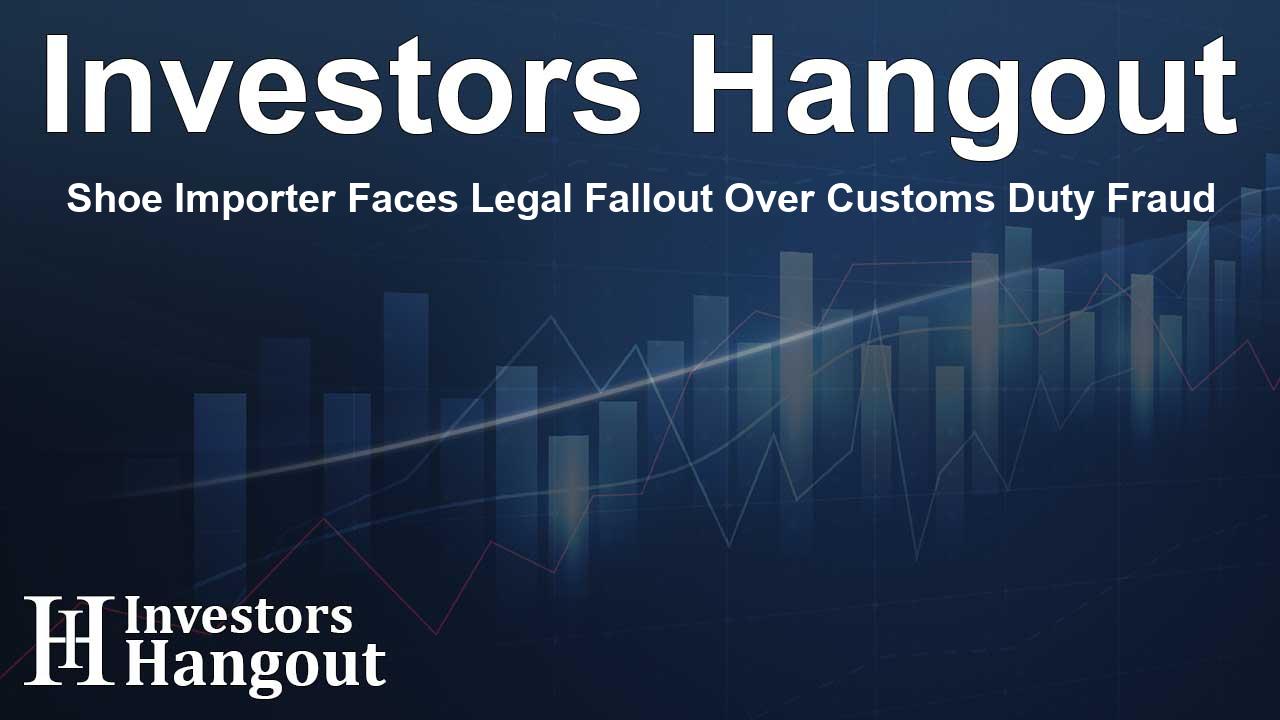Shoe Importer Faces Legal Fallout Over Customs Duty Fraud

Shoe Importer Faces Legal Fallout Over Customs Duty Fraud
In a significant legal development, the owner and CEO of GMI USA Corp. and Belovefine, Ltd., acknowledged legal consequences stemming from allegations of fraudulent activities linked to the Payroll Protection Program (PPP). Recently, a noteworthy settlement of $1.47 million was reached, marking an essential resolution for the whistleblower involved in this case.
Understanding the Whistleblower Action
The allegations were brought forth in a complaint lodged by a former employee of the company, Devyn Taylor. This whistleblower suit was filed under the False Claims Act, revealing claims that the companies engaged in deceptive practices while applying for forgivable loans. It was reported that GMI and Belovefine essentially operated as one single entity, yet attempted to deceive the authorities by separately applying for PPP loans for both businesses.
The Nature of the Allegations
As per Taylor's claims, the owner, Stefano Maroni, employed a range of dishonest tactics, such as misrepresenting the number of employees and falsely claiming differing business addresses for his companies. This resulted in obtaining over $1 million in funds meant for businesses struggling due to the COVID-19 pandemic, funds intended for legitimate payroll and operating expenses.
The Settlement and Its Implications
The Settlement Agreement was recently made public after a joint effort by the U.S. Attorney's Office and Taylor highlighted the fraudulent actions. It was noted that Maroni admitted to shifting employees between the two entities for selfish gain. Ultimately, this settlement not only highlights the intricate maneuvers businesses may resort to during crises but also shines a light on the critical role of whistleblowers in bringing such malpractices to the forefront.
Impacts on the Whistleblower
As stipulated in the Settlement Agreement, Taylor is set to receive a substantial portion of the settlement amount, which underscores the incentives provided to whistleblowers under the False Claims Act. This act serves as a vital tool for challenging fraud against government programs, where individuals can earn a percentage of recovered funds when they expose wrongdoing.
Continuing Legal Challenges
While this settlement addresses the allegations pertaining to the PPP, it is crucial to point out that separate claims concerning U.S. Customs duty fraud remain pending. This indicates that the legal repercussions for Maroni and his companies could continue, as the government has not yet resolved those specific allegations.
The Ongoing Role of the Justice System
Law firms like McInnis Law play a pivotal role in advocating for the protection of whistleblowers and ensuring that such fraud cases receive the attention they deserve. The statement from attorney Timothy J. McInnis underlines how vital it is for individuals to come forward and share their insider knowledge of fraudulent operations involving government funds.
Wider Context of PPP Fraud Allegations
The COVID-19 pandemic initiated a scramble for financial help among numerous enterprises. Unfortunately, this rush also created a fertile ground for wrongdoing. The spontaneous implementation of programs such as the PPP has seen numerous fraudulent claims, with many companies gaming the system for personal benefit. The backlash and uncovering of such fraud have opened avenues for tougher scrutiny on how funds were distributed and utilized.
Support from the Authorities
McInnis emphasized the collaboration between his office and federal inspectors in pursuing such fraud cases. The outcome of this suit serves as a critical reminder that diligent oversight is required as the nation navigates its recovery from recent financial turmoil. The acknowledgement of wrongdoing by high-profile businesses has implications that reach beyond individual settlements, casting light on necessary reforms within these assistance programs.
Frequently Asked Questions
What led to the lawsuit against GMI USA Corp.?
The lawsuit stemmed from allegations that the company fraudulently obtained PPP loans by misrepresenting employee counts and shifting employees between its two entities.
How much was the settlement amount?
The settlement amount reached was $1,470,085 to resolve the allegations regarding PPP fraud.
Who is the whistleblower in this case?
The whistleblower is Devyn Taylor, a former employee of GMI USA Corp. who reported the fraudulent actions.
What are the ongoing legal issues related to this case?
In addition to the PPP fraud settlement, there are separate allegations concerning U.S. Customs duty fraud that are still being litigated.
What does this settlement mean for whistleblower protections?
This settlement reinforces the importance of whistleblower protections and the incentives provided under laws like the False Claims Act to report fraudulent activities.
About Investors Hangout
Investors Hangout is a leading online stock forum for financial discussion and learning, offering a wide range of free tools and resources. It draws in traders of all levels, who exchange market knowledge, investigate trading tactics, and keep an eye on industry developments in real time. Featuring financial articles, stock message boards, quotes, charts, company profiles, and live news updates. Through cooperative learning and a wealth of informational resources, it helps users from novices creating their first portfolios to experts honing their techniques. Join Investors Hangout today: https://investorshangout.com/
Disclaimer: The content of this article is solely for general informational purposes only; it does not represent legal, financial, or investment advice. Investors Hangout does not offer financial advice; the author is not a licensed financial advisor. Consult a qualified advisor before making any financial or investment decisions based on this article. The author's interpretation of publicly available data shapes the opinions presented here; as a result, they should not be taken as advice to purchase, sell, or hold any securities mentioned or any other investments. The author does not guarantee the accuracy, completeness, or timeliness of any material, providing it "as is." Information and market conditions may change; past performance is not indicative of future outcomes. If any of the material offered here is inaccurate, please contact us for corrections.